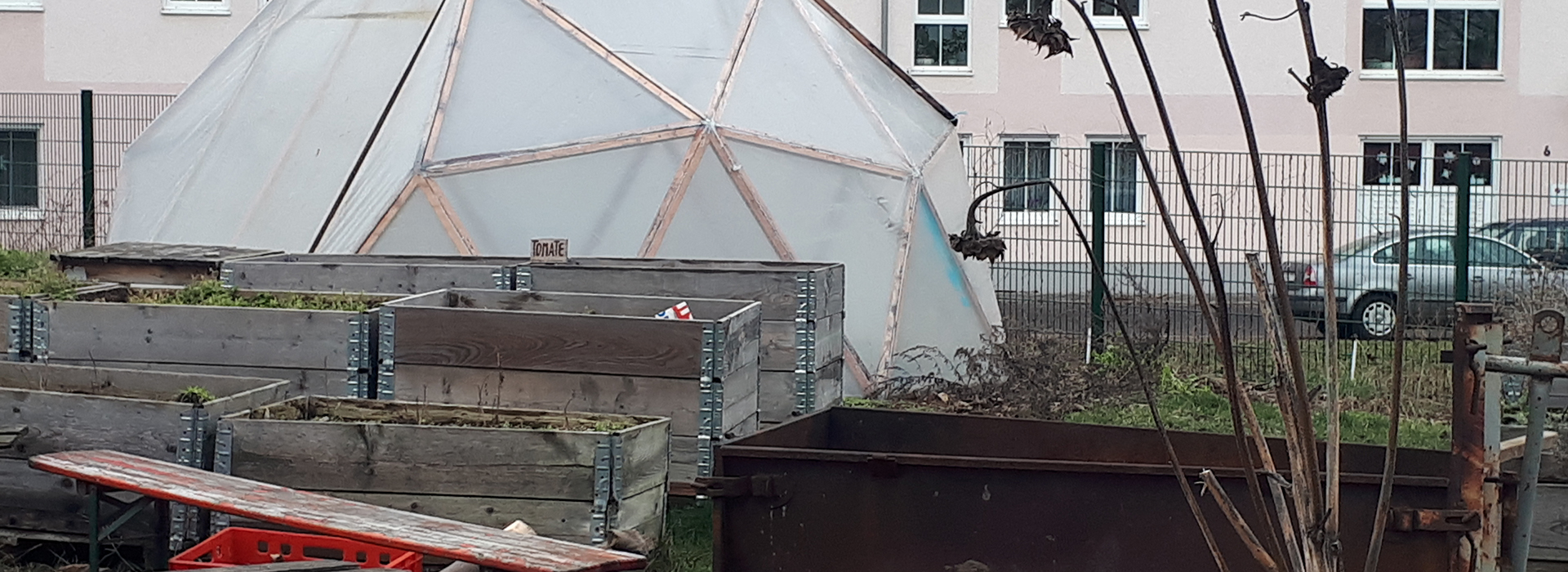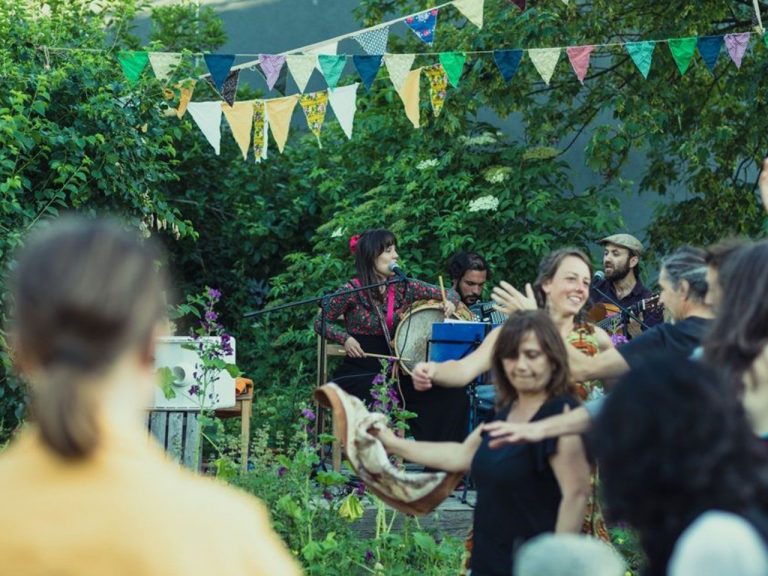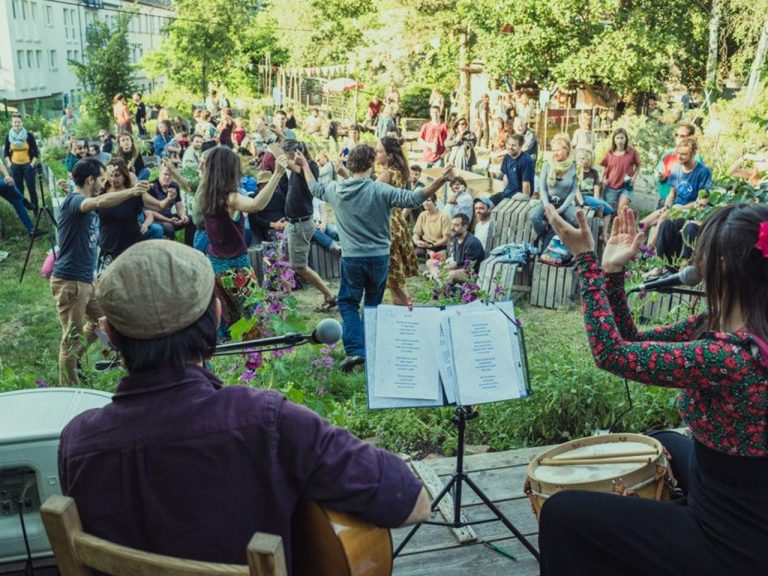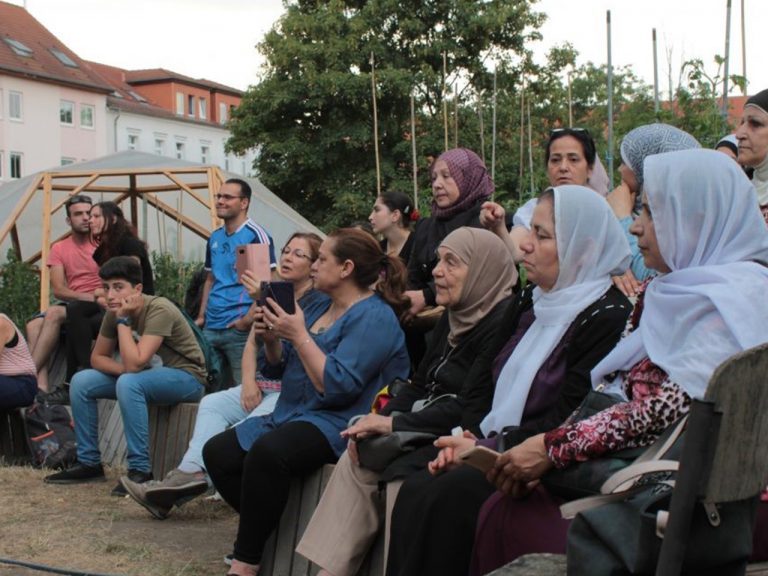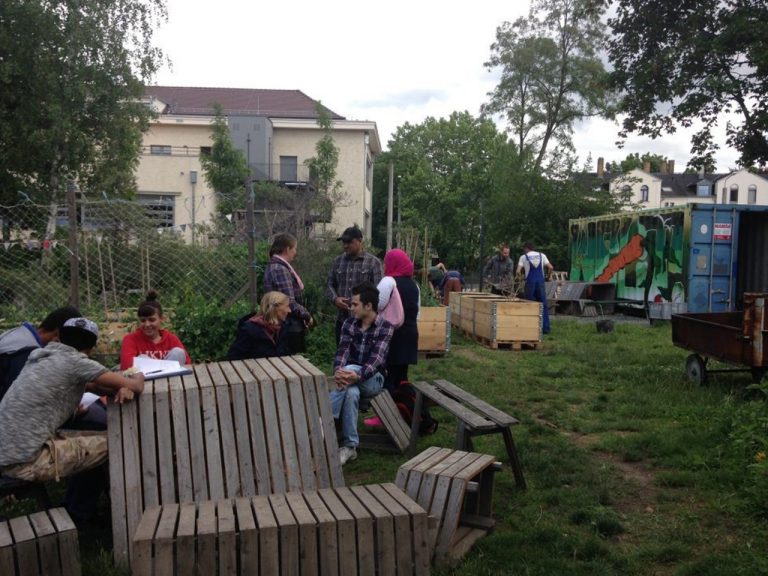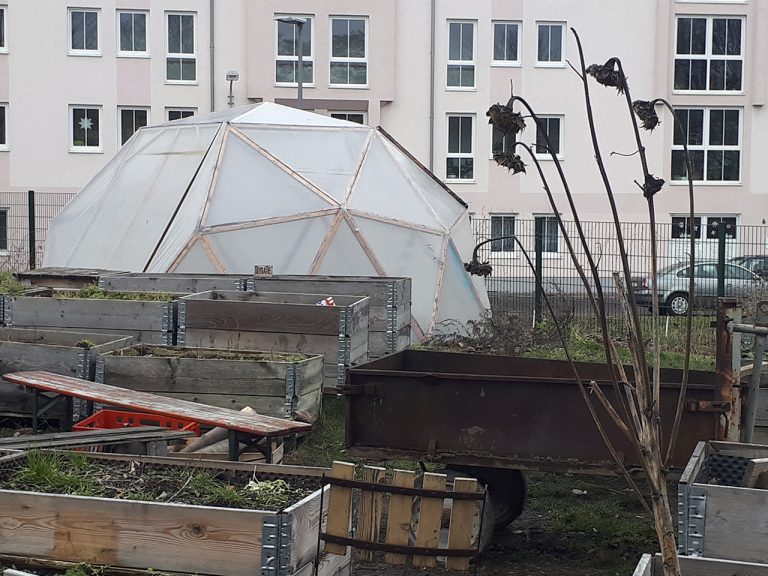Celebrating the end of Ramadan together with garden members and the neighbourhood to foster intercultural exchange.
“Plan in advance. It is a lot of work. Try a smaller event to start with. Include music or games.”
Description of the activity
After Ramadan, the intercultural garden group had organised a sugar feast to celebrate the end of fasting and to have a cultural experience. The event was open to garden members and the wider community. Traditional food was made available, but also meals were prepared from the produce grown served in the garden. Traditional dances were performed and games played. A life band presented Arabic songs which included songs from people’s home countries and childhood. These songs were a kind of highlight of the event. The greatest challenges to the activity are weather conditions, actual attendance of people and the organisation as the party was open to the wider community and not only an internal event.

 English
English  Deutsch
Deutsch  Español
Español  Svenska
Svenska 